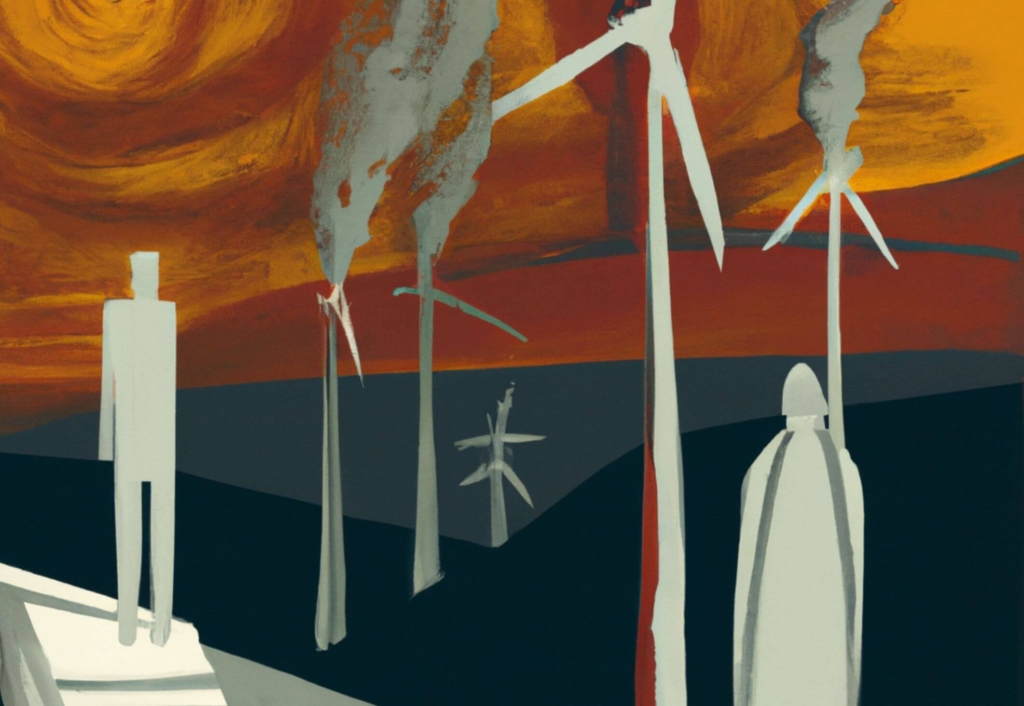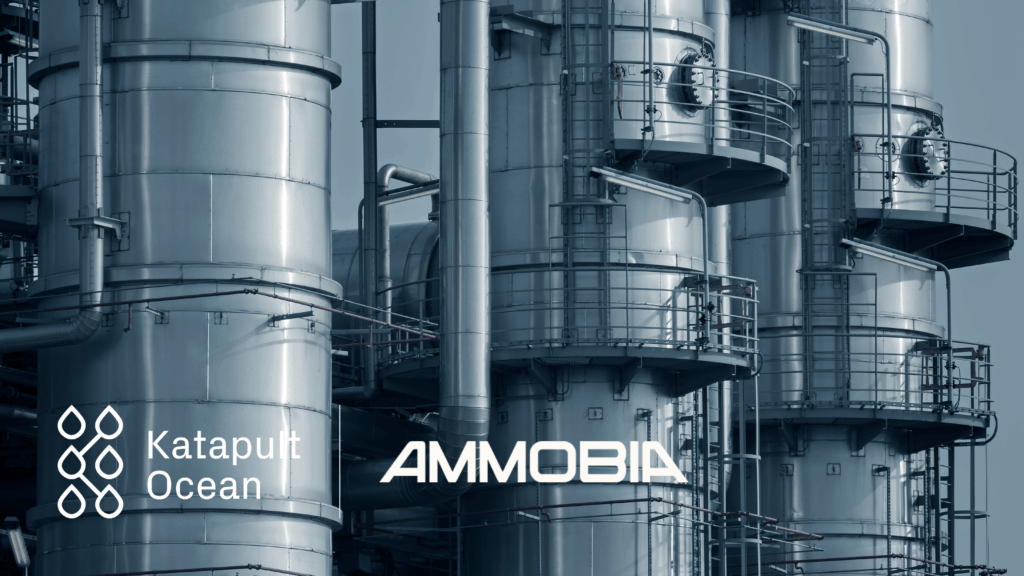02 – The green fog of war

Dall-e Art: A-dystopian-scene-of-renewable-energy-in-the-style-of-Munch.
If the new millennium will be known for anything, it certainly marked the beginning of a new era of misinformation. Since the 2000s, the digital revolution, the rise of social media and dopamin engineered clickbaits have wreaked havoc on objective journalism and factual argumentation. It is literally some people’s job today to make brands, products or services fall in line with public opinion and the overall consumer sentiment. To me, at least, it seems the spin doctors are in control more than ever, making it damn near impossible for people to know which companies align with their morals and values.
It reminds me of an article I read years ago, by the ‘Copenhagen Institute for the Future’ headlined ‘Branding er tabernes hævn’ which translates to ‘Branding is the loser’s revenge’. It tells the story of how companies are increasingly shifting their focus from the primary (the actual), to the secondary. From performance and quality, to words, symbols and universes that offer little to no substance. It’s the last desperate attempt by a lesser competitor to level the playing field, even though they have an inferior product in the market. Build a strong enough brand and you can get away with anything. In our line of work this is referred to as green-washing, and you read about it every single day.
Take the case of global coffee darling Starbucks that everyone loves to hate. In 2018, they released a “straw-less lid” as part of its sustainability drive and promised to end all use of plastic straws in their 28.000 stores by 2020. But what do you know? It actually contained more plastics than the old lid-and-straw solution. Here’s to the green revolution!
Or H&M who recently got caught red-handed in a Quartz exposé. The fast-fashion behemoth flipped the scale, showing consumers environmental scorecards that were exactly opposite of what was actually happening. In a specific case, “-20% water usage” index score, that is, a garment that used 20% more water than average, was listed on H&M’s website as using 20% less. Apparently, at H&M, more is actually less and not the other way around.
The problem is, this is how we currently are dealing with our global challenges. Through smoke and mirrors, haze and fog. Through rhetoric and deception, rather than genuine action, transparency and accountability. Imagine, for a second, what would happen if a member of the H&M executive group stood up and said, “you know what, forget about all these dubious scorecards. Instead, let’s transform our business. Let’s make a significant contribution to the global water shortage problem AND make circularity the very core of our brand”. What do you think would happen?
It’s not a wild idea; plenty of companies have managed a transformation allowing impact and shareholder value to co-exist at great success. Perhaps most famous in the world of apparel is Patagonia, sitting at around $3bn in market cap banking in $1.5bn in yearly revenue. Its massive operation has been a source of inspiration for many, not only because of its commitment to the environment, but also its “brand activism” which is capturing the hearts and minds of new leadership across the world.
Closer to home, in Denmark, energy juggernaut Orsted went from an oil & gas exploration company to fully committing to fighting climate change by becoming the world’s largest developer of offshore wind power. At a whopping $40bn market cap, they employ some 7.000 people and drive revenue in excess of $3.5bn. Amazing. Unfortunately, very few leaders among the incumbents will have the brio to pull a 180 like the examples above, which is why we must look to the upstarts.
And this, dear reader, is the raison d’etre of an impact investor like Katapult. To find startups that cut through the BS and support them with money, know-how and networks.
Startups like South Africa based Brayfoil who use morphing wing technology allowing wind turbines to generate 25% more power. Just imagine the total increase of global renewable energy, if every wind turbine could produce 25% more electricity. Or startups like Crop2Cash who give African small-holder farmers access to basic banking services through low-tech USSD feature phones, effectively increasing their income by as much as 70%. Or aquaculture upstart Oregon Seaweed who’s spearheading a fundamentally new way of growing carbon-negative, non polluting seaweed used for alternative sources of protein. Or how about 3D-printing cement company Hyperion Robotics that drastically reduces the amount of cement needed in conventional buildings, allowing for 50% less lead-time and 90% reduction in CO2 emissions.
These are companies chasing specific outputs that lead to specific outcomes which, in turn, can lead to specific impact. It’s tangible and measurable; a stark contrast to the equivocacy of ESG which nobody seems to fully grasp nor agree upon.
A final thought. ESG is a liability to the whole impact investment space. Historically, ESG was introduced to unearth financial risk, as a safeguard. The logic was, by not paying attention to environmental, social or governance matters, you could compromise a company’s ability to make money. It has nothing to do, in most cases, with its contribution to people or planet. That’s why tobacco companies and oil & gas operators score high on the ESG barometer while electric mobility pioneers like Tesla do not. Still confused about impact and ESG? I don’t blame you.
But readers, here’s my question. What’s your advice for investment managers of pension funds, foundations and large banks who feel stymied by the lack of clarity in the do-good asset class? How might we channel more capital, people and resources to companies that have tangible impact even faster than we are now?
– Marcus Hølland Eikeland is a Partner at Katapult and Director of Program. You can read the first instalment of the blog series here.

